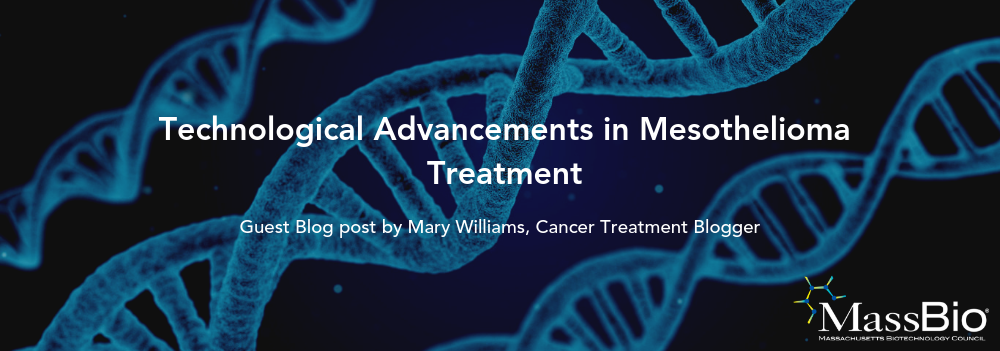
Mesothelioma, the aggressive cancer caused by asbestos exposure, is notoriously difficult to treat. Standard methods of surgery, chemotherapy, and radiation can only do so much. Many patients are diagnosed in later stages, leaving them with limited options. But researchers are always working on new technology and have come up with some exciting advances in treating this tough disease.
Inhaled Lung Treatment from MIT
One recent and important new technology that may benefit patients with all types of lung diseases, including lung cancer and mesothelioma, comes from researchers at MIT’s Koch Center for Integrative Cancer Research. Scientists here have come up with a treatment that can be inhaled by patients, improving the efficiency and effectiveness of drug delivery.
The new drug delivery system has so far only been tested in laboratory animals, but it shows great promise for use in human patients. The idea is that inhalation will be more effective at delivering drugs to the right location, the lungs, and keeping it there for an extended period of time.
The treatment that the researchers are using with inhalation delivery is a type of genetic therapy. The inhalation device delivers a substance called messenger RNA. This goes into cells and instructs them to make certain compounds that would help treat the disease in question. Essentially this turn the patient’s own cells into factories producing disease-fighting drugs.
New Technology Helps Individualize Mesothelioma Treatment
A major trend in treating all types of cancers is individualizing therapies. Researchers are increasingly discovering that each case of cancer is unique from every other, even between two individuals with the same type of cancer. If therapies can be made more individualized for a patient’s cancer cells and genetics, it may be more effective.
Researchers at the Mayo Clinic have used a new technology called mate-pair sequencing to find genetic and chromosomal variations in mesothelioma cells in individual patients. They are finding unusual rearrangements of chromosomes in mesothelioma that are not typically seen in other types of cancer.
These variations could be important in developing individual treatments for patients. The researchers hope that finding the exact chromosomal rearrangements in a patient will predict whether he or she will respond well to immunotherapy treatments, for instance. This will lead to more effective, focused mesothelioma treatments.
New Diagnostic Technology
While advancements in treatment are important for patients with mesothelioma, so is early diagnosis. Mesothelioma is often difficult to treat because it is difficult to diagnose before it has advanced and spread. New technologies using blood tests and biomarkers are making it possible to diagnose this cancer earlier than ever.
Some screening technologies developed so far have been able to identify a number of proteins in the blood that may indicate the presence of mesothelioma. One screening tool was shown to have a sensitivity of 93 percent and a specificity nearly as high. Another test detected mesothelioma markers in the blood as much a year in advance of patients getting actual diagnosis of the cancer. Currently these new diagnostic strategies are not good enough to be used alone, but they could potentially be promising tools that help catch cases of cancer sooner.
Technology plays a big role in advancing survival rates for difficult types of cancer like mesothelioma. This is a rare cancer, but it is one that impacts thousands of people and that should have been prevented. Exposure to asbestos caused so much harm, but now technological advancements are helping make this disease less of a terminal cancer and more of a manageable, chronic illness.